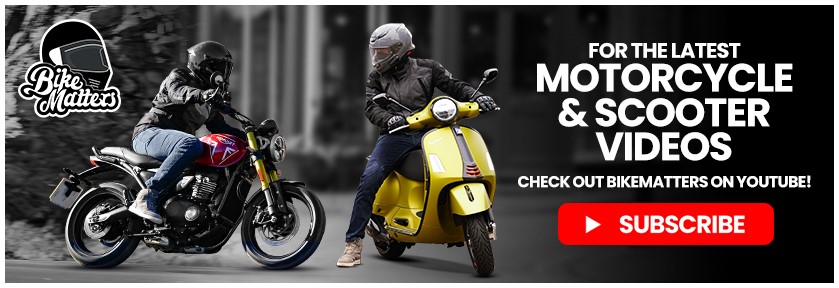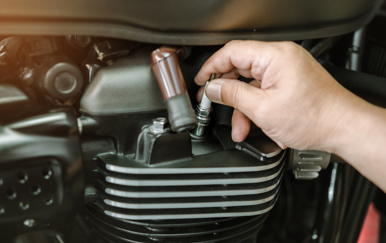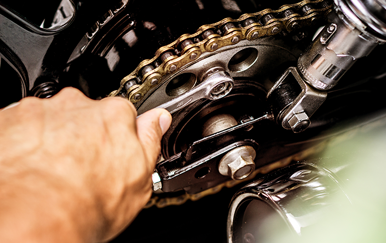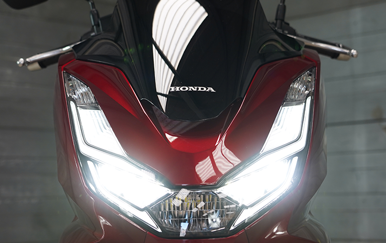Are you tempted to hop on your motorcycle and explore the best Europe has to offer? Well if you are new to exploring foreign shores on your two-wheeled steed, stay tuned because in this article you’ll find all the essential information to guide you on your touring holiday in Europe.
It is important to familiarise yourself with the road laws of the country that you are visiting, so make sure you do plenty of research so you’re prepped and ready to go.
So let’s get started, shall we? In this blog, we will be taking a deep dive into all you need to know before you begin your European trip…
Do I need a different licence for motorbike riding abroad?

If you want to ride overseas, you must have your full UK licence.
Although, if you don't have your full licence yet, and you only have your A1 or A2 licence in the UK you will only be able to ride bikes with the same engine and output abroad.
If you need further help or guidance on different licences, head over to our full UK licensing guide.
Can I ride in Europe on a CBT licence?
Sadly, just having your CBT certificate will not cut it. If you only hold your CBT, legally you cannot ride abroad.
What do I need to do to ride my motorcycle abroad?
If you wish to ride your bike abroad, you will need the following:
- Original vehicle registration certificate or letter of permission from the registered owner
- Insurance certificate
- Passport
- A UK sticker (if not on your bike already)
- Valid Tax and MOT
- European Health Insurance Card (EHIC)
- European breakdown cover policy documents (you might have a normal breakdown policy covering the UK, but it is well worth ensuring you have cover in place should the worst happen when you are abroad!)
How to prepare for riding abroad

Once you’ve compiled a list of things you need in order to ride abroad, it is important to turn your attention to your bike itself.
Before you ride into the European sunset, it is also worth giving your bike a mini ‘health check’, making sure everything is in running order – encountering a problem many miles away from home is not fun!
There are a few simple and easy tasks you can carry out at home such as:
- Oil and fluid levels
- Tyre pressure and checking tread depth
- Making sure your battery is fully charged
- Checking over your brakes and brake pads
- Chain
Thankfully we have a great range of motorcycle maintenance guides to help you out, so make sure you head over to:
- Motorcycle Maintenance: Guide to checking and changing motorcycle headlight bulbs
- Motorcycle maintenance: How to tighten a loose motorcycle chain
- Motorcycle maintenance: When and how to replace spark plugs
What should I bring on a motorcycle touring holiday?
When riding in Europe, some countries have their very own requirements which you must remember to bring along with you:
1. Breathalyser kit
Carrying a breathalyser with you is a legal requirement in France. Breathalysers can be bought for a few pounds, so while you will not be fined for not carrying one, you may as well just take one for ease.
2. High visibility jacket
It is worth bringing a high-vis jacket just in case of a breakdown. If you’re intending on taking a pillion with you, they will need one too as it is a requirement by law in France. Failure to comply with this law can come with some pretty hefty fines.
3. Spare bulbs
Many countries including the likes of France and Germany require you to carry spare bulbs and headlight adapters to stop your front lights from dazzling and causing interference with oncoming traffic.
4. Helmets
While helmets are a legal requirement in many countries, some EU countries require you to have reflective stickers on your helmet also.
What are the rules and regulations when riding in Europe?
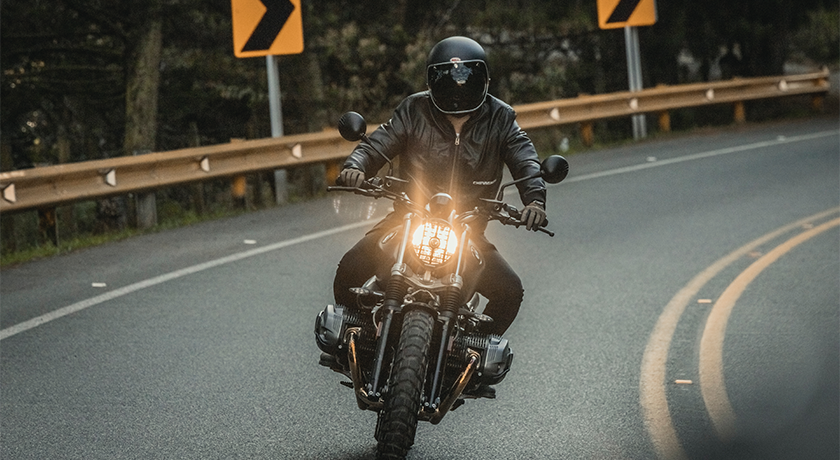
The rules and regulations when riding in Europe vary largely in comparison to the UK. There’s more to it than just riding on the other side of the road.
Motorcycle touring in Spain
- Compulsory: you must have your headlights on during the daytime and carry a safety jacket with you.
- Filtering through traffic jams is allowed.
- As of May 2022, radar detectors have been made illegal.
Motorcycle touring in France
- Compulsory: similar to Spain, you must have your headlights on during the daytime and carry a safety jacket with you at all times.
- Riders and passengers are also required to wear a CE-certified helmet (with a GB sticker attached) and gloves.
- Filtering through a traffic jam is not allowed.
- If you are riding into the bigger French cities, you will need a ‘Crit’ Air’ sticker, showing your bike's emissions and will need to check if the vehicle is allowed to enter the city. You can apply for a sticker and check your route on the Crit’ Air website.
Motorcycle touring in Germany
- Compulsory: you must have your headlight on during the day, and if you are someone who wears glasses when riding, you must take a spare pair with you.
- Recommended: it is advised that you have a safety jacket and first aid kit on you.
- Filtering through traffic is not allowed.
Motorcycle touring in Italy
- Compulsory: You must have your headlight on during the day.
- Filtering through traffic jams is allowed.
Motorcycle touring in Portugal
- Compulsory: You must have your headlight on during the daytime, and you also must carry a safety jacket with you.
- Filtering through traffic jams is allowed.
Ready to ride?
If you’re planning to ride abroad before you think about going anywhere it is important to check your insurance policy to see if you are covered to ride outside of the UK.
Not every policy will have an automatic cover, however, European cover can be added for a small fee.
If your insurance policy does have European cover, most will be limited to how long you will be covered for (typically 90 days) so it is worth thinking about how often you intend to ride in Europe, do you need it for just one trip, or do you need longer coverage extending over a couple of months?
Also, you should think about your attitude towards risk. While you may have a basic level of cover when you're here in the UK, when you’re abroad it is essential to protect yourself as much as possible, helping you to feel comfortable and secure.
Last but not least, remember to check if there are any limitations to your policy that cover damage or theft while travelling as this can vary massively between insurers. Check now before it is too late…
*If you have made any modifications to your bike and you haven’t informed your insurers when you make a claim it can be invalidated entirely*
The Last Stop!
Now the information provided in this article was correct at the time of writing, but like all things could get dated, so before you set off on your adventures do always check the limitations and requirements of the countries you'll be visiting.
If you are needing to insure your bike or scooter before your trip across Europe, make sure to get a motorcycle insurance quote with Lexham!

